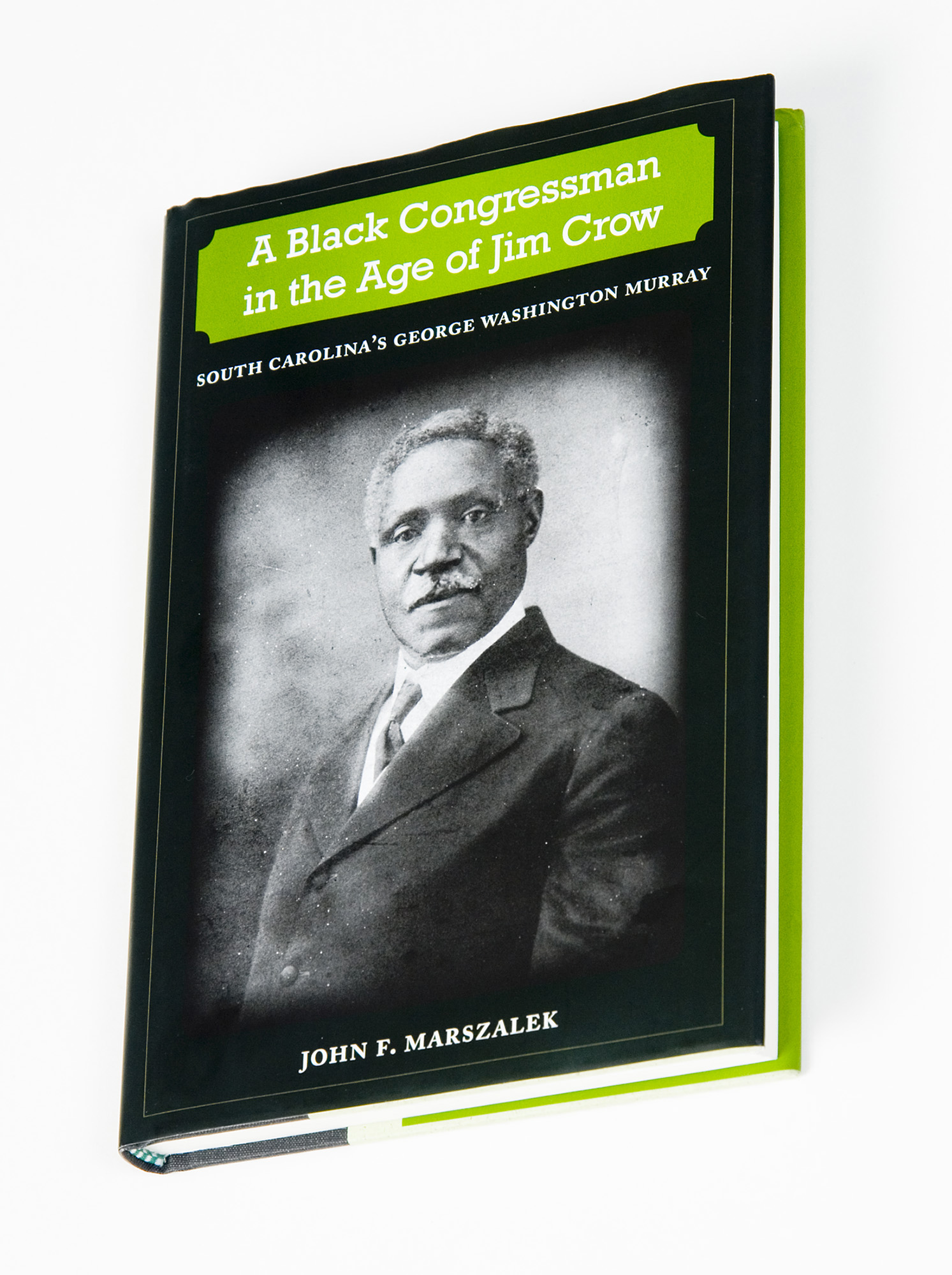Contact: Phil Hearn

STARKVILLE, Miss.--John Marszalek's new book about a black South Carolina congressman's life and career in the Jim Crow South paints the picture of a man who would not abandon his quest for justice despite the forces of racism that thwarted his every step.
"Here's a man and race of people who weren't just rolling over and playing dead," the Mississippi State historian said of George Washington Murray, the subject of his new political biography. "They were going to do everything they could to try to make it in a hostile world."
"A Black Congressman in the Age of Jim Crow: South Carolina's George Washington Murray" is a fall 2006 offering by University Press of Florida.
It is part of a UPF book series, "New Perspectives on the History of the South," edited by professor John David Smith of the University of North Carolina, Charlotte.
Born a slave in 1850s South Carolina and elected to Congress in the 1890s, Murray appeared to be the antithesis of the African-American male in the Jim Crow South. To many, he served as a beacon for blacks who saw their hopes crushed in the aftermath of the Civil War.
An MSU Giles Distinguished Professor Emeritus of History, Marszalek conducted extensive research to reconstruct Murray's life story. His book defines an age and its people through the compelling battle of one man, showing how and why the nation's efforts to reconstruct the South into a biracial democracy failed.
Marszalek retired from teaching in 2002 after a nearly 30-year career at Mississippi State. In addition to historical research and writing, he continues to serve the university as director and mentor for the Distinguished Scholars Program.
"Through the political biography of Murray, one sees the myriad forces arrayed against southern Republicanism in the late 19th century, and also witnesses the trials and tribulations one of the major African-American political leaders faced in the quest for racial justice in the new South," writes College of Charleston reviewer Bernard Powers.
Spanning a quarter of a century, Murray's career included two terms in the U.S. House of Representatives and leadership of South Carolina's Republican Party. He was an investor as well as a landed property owner who sold tracts to poor blacks in an effort to help them qualify to vote.
"He was the quintessential black man," said Marszalek, who has published widely on Jacksonian America, the Civil War and U.S. race relations. "Coming out of a slave background and self-educated, he was called the black 'bold eagle' and he was very proud of that.
"Murray was saying to the average, poor, uneducated black, 'There is a way for you to become a part of society. Even though they won't let you get an education, the South Carolina Constitution gives you an out. If you've got $300 worth of land, you can vote and you can participate,'" Marszalek observed.
By the beginning of the 20th century, however, with the Republican Party in shambles, Murray found himself on trial for alleged forgery in a land deal with two of his black land purchasers. Marszalek believes the charges were trumped up by the white power structure that opposed Murray.
Murray was found guilty and the South Carolina Supreme Court upheld the verdict. Sentenced to hard labor on a chain gang, he escaped to Chicago where he spent the rest of his life in obscurity. He died in 1926.
"Basically, I think they (the white power structure) went after him because he was being too successful," said Marszalek. "At the time, there was this thing called 'white capping,' whereby whites would run out of the community successful blacks because they were inspiring others. I think that's what happened to Murray.
"I think Murray is important because his life puts to lie this concept that blacks, and 19th century black and white Republicans, were venal, corrupt people who didn't deserve to hold office and be part of the political process," said Marszalek.
"What he showed instead was they were basically just human beings who were trying to survive in an awful environment," he added. "He showed that no matter what they did, they were not going to be accepted as equals."
Marszalek won critical acclaim for his 1993 biography on Union general William T. Sherman. Titled, "Sherman: A Soldier's Passion for Order," the 635-page book was a finalist for the Lincoln Prize, considered the most prestigious award for Civil War books.
His earlier works also include, "Court Martial: A Black Man in America," which became a made-for-television movie and was republished as "Assault at West Point."
NEWS EDITORS/DIRECTORS: For more information, contact Dr. Marszalek at (662) 323-8068 or johnmarsz@yahoo.com.
For more information about Mississippi State University, see http://www.msstate.edu/.